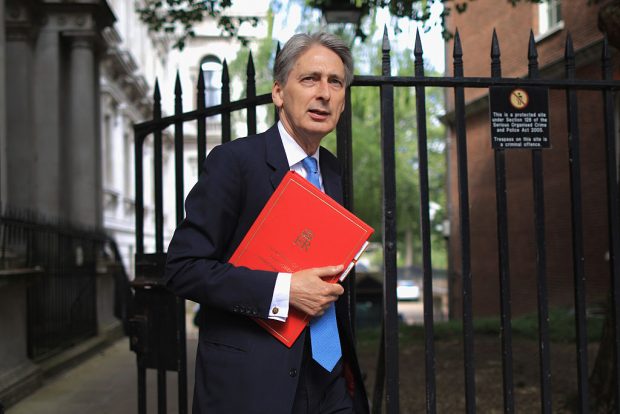So, austerity is to end. Or that is what the briefings for Wednesday’s Autumn Statement seem to indicate: Philip Hammond will loosen the purse strings, relax his fiscal targets and give the economy a big public spending-induced buzz – if indeed buzz is quite the right word for what happens when governments spend money.
There is just one problem with what Hammond appears to be proposing. No, not that it almost certainly won’t be enough to please Ed Balls, Yanis Varoufakis, the unions, the Guardian and everyone else on the left who accused George Osborne of trashing the economy by making ‘cuts’ – or, more accurately, by refusing to grow public spending in line with what they think it ought to grow by.
No, the problem is that Philip Hammond would appear to be breaking the law if he does not set out a plan for the government to run a surplus from 2019/20 onwards. From then on, according to the Fiscal Mandate set by George Osborne a year ago, governments must run a surplus except in special circumstances – namely when economic growth falls below one per cent. The annual rate of growth currently stands at 2.2 per cent.
So, will Scotland Yard be at hand to lead Hammond off in chains as he leaves the chamber on Wednesday? Probably not, but it does raise the intriguing prospect that someone – perhaps the Taxpayers’ Alliance – could challenge Hammond’s Autumn Statement through a judicial review in the High Court.
Many might relish the prospect, but however tempting it may be to make a stand against wasteful public sector spending and send the Chancellor off with a bloody nose I can’t quite summon enthusiasm for yet another political decision to be deferred to the courts. As I wrote here last year – before Osborne came up with his revised Fiscal Mandate – our leaders seem to have developed a fetish for passing laws which seek to bind their own hands and the hands of their successors.
Not satisfied by nannying the rest of us, they are nannying themselves. Pieces of legislation such as the Climate Change Act, which sets legally-binding targets for reducing carbon emissions, are hostages to fortune which will give armoury to any pressure group which wants to challenge the government on policy on roads, airports and so on.
Maybe Osborne had an inkling of his imminent demise as Chancellor and deliberately planted his Fiscal Mandate as unexploded bomb in 11 Downing Street. But I suspect that would be a little too Machiavellian even for him. More likely, it was a rash gesture which he would himself have come to regret.







Comments